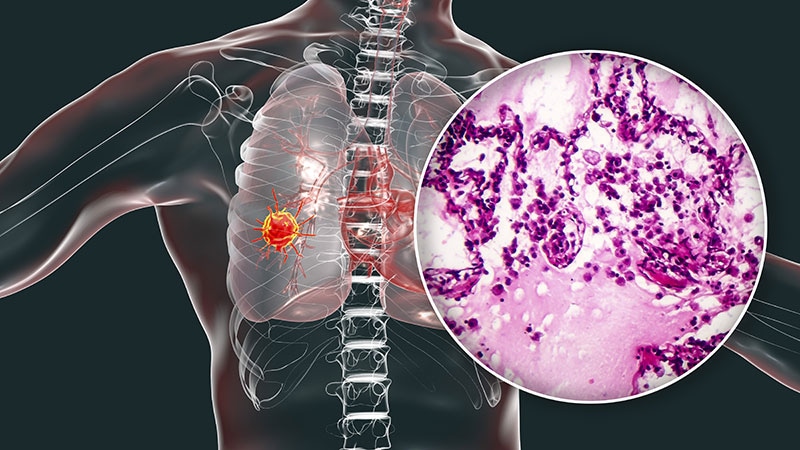Depression Linked to Inflammation and Poorer Survival Outcomes in Lung Cancer Patients
מושגי ליבה
Patients with lung cancer who have higher levels of depression are more likely to have increased inflammation, which is associated with worse overall survival.
תקציר
This study examined the relationship between depression, inflammation, and survival outcomes in 186 patients with newly diagnosed stage IV non-small cell lung cancer (NSCLC). The key findings are:
35% of the patients reported moderate to severe depressive symptoms.
Depression was associated with higher levels of systemic inflammation markers, including neutrophil-to-lymphocyte ratio (NLR), platelet-to-lymphocyte ratio (PLR), and Advanced Lung Cancer Inflammation Index (ALI) score.
These inflammation markers were prognostic for 2-year overall survival (OS). Patients with higher NLRs and PLRs, and lower ALI scores, had worse OS.
Patients with high depression levels were 1.3 to 3 times more likely to have high inflammation levels, even after controlling for other factors.
The trajectory of depression from diagnosis through 2 years also predicted NSCLC patients' survival, beyond baseline depression and other clinical factors.
The findings suggest that depression and associated inflammation may contribute to the poor response to new cancer treatments, like immunotherapy and targeted therapies, in some lung cancer patients.
The authors conclude that further research is needed to understand the mechanisms linking depression, inflammation, and survival in lung cancer, with the goal of improving patient outcomes.
Depression Tied to Inflammation and Survival in Lung Cancer
סטטיסטיקה
Overall mortality at 2 years was 61%.
Higher NLRs and PLRs and lower ALI scores all predicted worse OS (hazard ratio [HR], 1.91, 2.08, and 0.53, respectively).
56% of patients with no or mild depression had a PLR above the cutoff for dangerous levels of inflammation, compared to 77% of those with high depression levels.
ציטוטים
"These patients with high levels of depression are at much higher risk for poor outcomes."
"It was patients with high depression levels who had strikingly higher inflammation levels, and that is what really drove the correlation we saw."
"Depression levels may be as important or even more important than other factors that have been associated with how people fare with lung cancer."
תובנות מפתח מזוקקות מ:
by Sharon Worce... ב- www.medscape.com 03-21-2023
https://www.medscape.com/viewarticle/989911
שאלות מעמיקות
How can the mechanisms linking depression, inflammation, and survival outcomes in lung cancer be further elucidated through additional research?
Further research can delve into the specific pathways through which depression influences inflammation and subsequently impacts survival outcomes in lung cancer patients. This could involve conducting longitudinal studies to track changes in inflammatory markers and depression levels over time, as well as exploring the potential role of stress hormones and immune system dysregulation in this relationship. Additionally, investigating the impact of interventions targeting depression on inflammation and survival could provide valuable insights into the underlying mechanisms.
What are the potential limitations of relying on self-reported depression measures, and how could future studies incorporate more comprehensive assessments of mental health?
Self-reported depression measures may be subject to biases, such as social desirability bias or inaccuracies in symptom reporting. Future studies could incorporate clinician-administered assessments, diagnostic interviews, or objective measures of depression, such as biomarkers or neuroimaging techniques. Utilizing a combination of self-report and objective measures could provide a more comprehensive understanding of the mental health status of lung cancer patients and enhance the validity and reliability of the findings.
What other comorbidities or lifestyle factors may interact with depression and inflammation to influence lung cancer prognosis, and how could a more holistic approach to patient care address these complex relationships?
Comorbidities such as cardiovascular disease, diabetes, or obesity, as well as lifestyle factors like smoking, physical activity, and diet, may interact with depression and inflammation to influence lung cancer prognosis. A more holistic approach to patient care could involve multidisciplinary teams that address not only the medical aspects of lung cancer but also the psychological, social, and lifestyle factors that impact patient outcomes. Integrating mental health support, nutritional counseling, smoking cessation programs, and physical activity interventions into cancer care plans could help address these complex relationships and improve overall patient well-being and survival.
0
